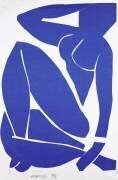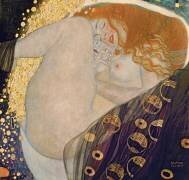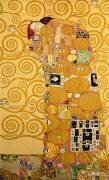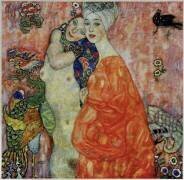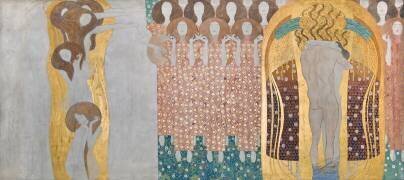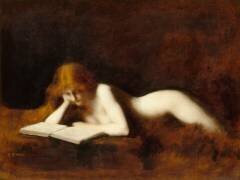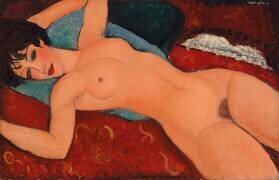Subjects: Mythology, NudeKeywords: Leo, Scorpio, attached, prison, sign of the zodiac, woman(Ref : 204577) © Tamara de Lempicka Estate, LLC - ADAGP, Paris, 2020 / Cliché : AKG
Customise
Your art print
L'esclave ou Andromède, 1929. Collectio... OF Tamara de Lempicka
The artwork
L'esclave ou Andromède, 1929. Collection privée
Esther Dressing for Presentation to King Ahasuerus, known as The Toilet of Esther, is an Orientalist oil painting by the French Romantic painter Théodore Chassériau. Produced in 1841, it depicts an episode from the Book of Esther, when Esther prepares to meet King Ahasuerus, ruler of Persia, who will then take her as his wife. The painting is in the Louvre Museum. Vincent Pomarède, former head of the museum's Paintings Department, described it as "one of the most famous paintings in the Louvre".
The subject derives from the Book of Esther (2:8-9, 15), in which the Persian King Ahasuerus, after giving up his wife Vashti, looks for a new queen. Esther, a woman of great beauty, finds favour with Hegai, the eunuch in charge of preparing women for presentation to the king. When he saw Esther, Ahasuerus chose her as his wife. Later, she revealed that she was Jewish, and interceded with the king to spare the lives of the captive Jews.
The episode had rarely been painted before. Only two previous versions are known: a 17th-century painting by Arent de Gelder, and an 18th-century one by Jean-François de Troy. As there were very few descriptions of this episode, Chassériau would have been inspired by paintings of women at their toilette, including depictions of Venus, of which there were many examples.
The biblical subject is a pretext for evoking a mythical and colourful Orient. Esther is depicted seated in the centre of the canvas, her arms above her head as she arranges her blond [...]
This artwork is a painting from the modern period. It belongs to the art deco style.
« L'esclave ou Andromède, 1929. Collection privée » is kept at Private Collection.






